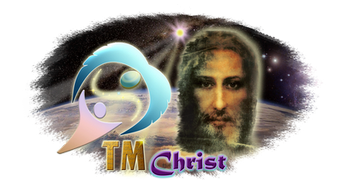9 Collectively these values provide a consistent means for making moral and ethical decisions. They provide a code of “organic morality” that is based on the values that are organic to our being, individually and universally. In the social context of a world that is changing rapidly, where predictability of the future is becoming less and less sure of what the next year and months bring to us, a timeless, universal organic morality as this is essential for sound decision-making using policies with predictable outcomes.
An evolved morality as this accepts and promotes the individual as having an intrinsic value to society. Such an evolved morality demonstrates the necessity of improving the quality of life for each individual to become a more valuable asset who can aid the progress of society. This is a proactive morality that adds value to the community as the individual proactively makes decisions that add sustainable value to their own life and their community. The same applies proactively when organizations make decisions in accord with these core values.
Cultures that understand this symbiosis will be well prepared to engage social sustainability because these values are integrative in nature, where the individual is seen as capable of influencing the whole as much as the whole influences the individual. This type of thinking values the circular, systems integrity of the family, community, and society. The individual exists in a relationship of connectedness, integration and inclusiveness, rather than separation and exclusiveness.
Quality, value-based thinking offers individuals the option of giving organic interpretations to their world. People are valued because they have the capacity to add quality-value to their community and society. Being valued, the community and society provide services to the individual and family all along the “continuum of life” to improve the capability of their social decision-making. With the above in mind, it becomes easier to see how this morality acts not only to preserve the quality-value of everyone, but proactively provides a more supportive social environment that adds value to the individual as an asset to their communities and societies. To increase the value of an individual’s contribution to society that individual must be seen as an asset whose value to society can be increased. The individual is an investment, an asset who can develop a “return on investment” for his or her family, community, and society.
By investing in the social sustainability of the family as the primary socializing and enculturating social institution in every community and society, the child-becoming-adult is prepared to use a code of sustaining morality. Investing in the social sustainability of individuals, beginning even before conception and continuing through the age of separation from the family, will assure the family, community, and dominant society of becoming socially sustainable. In this case, society must take on the vision of inventing and creating itself as socially sustainable through a new socially sustainable morality. Where better to teach a universal morality as this than in Christian churches?
Our planet is now in the throes of incredibly rapid global social change and the specter of rolling political, military, social, economic, and environmental calamities. A morality for this New Era of our planet now exists for guiding all decision-making, with the common goal of social stability by citizens, national leaders, and international leaders that makes global stability and peace possible.
For Christian religions to survive, they must take on the values that God incorporated in our species’ evolutionary creation. That statement may sound “pushy” until we realize that our species was created by God, but all Christian organizations are man made and highly fallible. To counter that fallibility it would seem intuitive for organizations to adopt the values that were invested in our species as an intentional attempt to emulate The Creator’s investment in us and carry Jesus’ message forward with greater credibility. I truly believe that God knew what It was doing, and that has proven very successful. Maybe Christianity can do the same?
There are many obvious blank places that will need to be filled in, such as an organizational infrastructure, ceremonies, rituals, creedal or belief statements, and educational programs. Church organizers may examine the following belief system and fill in the blanks as they choose.
9 Raphael, Daniel. ORGANIC MORALITY, Answering the Critically Important Moral Questions of the 3rd
Millennium. (An unpublished 91 page manuscript available as a PDF via email from the author.)
